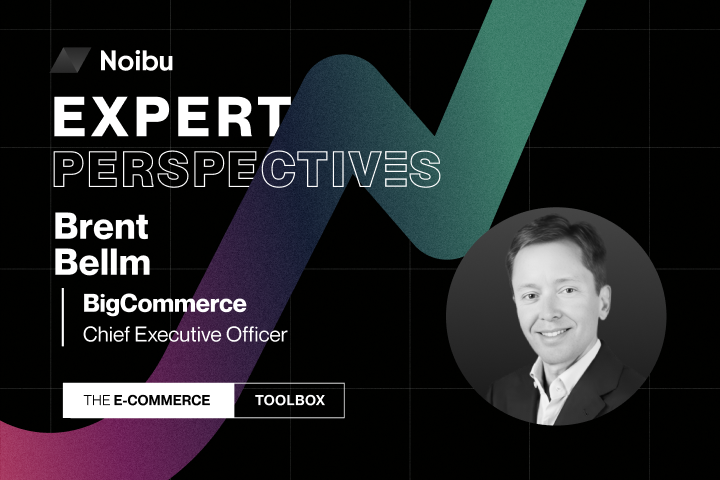Rudy Abitbol is a digital transformation expert with over 10 years of experience in the ecommerce industry. He is a prominent figure in the retail scene in Montreal and is known for his strong comprehension on how businesses work and how they can develop a strong ecommerce strategy. Among Rudy’s many accomplishments, a standout achievement of his is that his company “Pixel Society” joined altima in 2015, only 2 years after its creation. Additionally, after that, altima became Accenture Interactive. Now, Rudy is the Director of Digital Channels at Lumen, part of Sonepar. Lumen is Québec’s largest distributor of electrical equipment and Rudy plays an important role in executing digital strategies and implements procedures for ecommerce solutions. With Rudy’s extensive knowledge in the realm of ecommerce, we wanted his insight on what he thinks are trends in the ecommerce and retail worlds right now.

We first asked him what inspired him to get involved in the ecommerce scene. He explained that his interest in this area sparked from before he even came to Canada. Rudy indicated that he has always seen the internet as a space filled with opportunities. After working in traditional agencies in his early career, he noticed that the work he was doing was only helping companies for a limited period of time. He would solve a problem for them, and that would be it. What was attractive about getting involved in ecommerce was that websites need to perform for ongoing periods of time. They need to be durable because they are a large reflection on the business. At the time that Rudy was wanting to get more involved in ecommerce, he was especially noticing that there was a great increase in online shopping interest with platforms like Magento and Shopify, and he saw the importance to learn more and investigate the space.
In relation to online shopping, this new outlet of retail has caused the word “omnichannel” to gain a lot of attention. That’s why we asked Rudy what “omnichannel” means to him. Rudy sees omnichannel as based on one vision – being customer centric. Having a successful omnichannel is about having a harmonized retail where it really matters . The customer does not necessarily care about the individual touch points. What they care about is that the company knows how to deliver them with what they want/need. Therefore, in order to build this perspective from the customer, the successful touch points are vital. All in all, the customer IS the channel.
In order to strengthen a company’s omnichannel, Rudy also explained to us how he thinks brands can give a better customer experience online. He highlighted that a major way that this can be done is through making the process as simple as possible for the customer. Often when people are shopping as of current, they will either do the complete transaction online or they will look at the items online and then go to a brick-and-mortar location. The big problem with this is that there is little chance for human intervention now. There is no longer the opportunity for a sales person to speak about why the product is exceptional or why the customer should choose your brand over another. Now, it is all about the online representation. Ways that this can be done is through ensuring that your site is error free, speedy and contains the right information.
He emphasized that, “in 2019, there are no excuses for there to be errors on sites. The tolerance for any kind of online issues is at zero”. This comment is extremely relevant as it reflects upon the mindset of the current consumer. Now, in this hypercompetitive space, it is hard for companies to stand out from their competitors. If your website has an issue, they will go somewhere else for the same product or a similar one. Rudy believes that companies should look at a website as more than just an experience, they should look at it as a moment to show their expertise. This helps build customer trust. Another important point he noted is that you should never take your online experience as final. Companies must always be doing the most to improve and reform it where needed, in order to eliminate the friction points.
When it comes to brands today, Rudy believes their top three ecommerce priorities should be:
Understanding the impact of ecommerce.
When everyone in a company is on the same page (especially top management) and fully understands the difference having an exceptional ecommerce store can make, it gives everyone a goal point. It heightens the standards and expectations of the online store.
Giving the same experience throughout all touch points.
An ecommerce store is only one touch point in the omnichannel. In saying this, the online experience is just as important as one in person. These experiences both online and in-store must be complimentary. For example, if a customer goes to shop online and the product they are looking for says “out of stock”, they should not be able to go to the store and find it there. There should be a great effort in place to keep the online experience as up to date as possible.
Creating a personalized experience.
Lastly, customers now expect the experience to be personal. For example, you should have a different homepage for customers buying in New York versus customers buying in LA. This specific personalization allows your site to stand out from others and make the customer see that you care about their interests and them as an individual.
Lastly, we asked Rudy what changes he has seen in customer behaviour over the past few years. Connecting to the last point above, he explained that customers not only want to feel unique to the brand, they also want to feel a special connection with it. For example, they want the brands to have interests in things the customers are interested – like donating to charities. They want brands to behave like a human personality. Unfortunately, it is difficult to create this persona only through IT. Consumers realize that they do not need your brand and that needs to be recognized by the company. Consumers now will support what they want to, and boycott what they don’t. This point is crucial for retailers to remember as it serves as a reminder to stay focused, diligent and positive in this competitive retail landscape.


